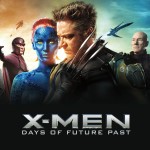When I was young, I heard many a sermon that was based on math. Pastors would make simple calculations like this: “The time you spend in heaven and hell will be far longer than the time you spend on earth. You should do things that contribute to your ‘eternal bank account’ (i.e. reading Bible, praying) rather than your ‘spiritual bank account’ (i.e. getting good grades, being cool). Live for something greater. For something eternal.” The logic was that whatever is longer is generally more meaningful and worthier of attention.
There are many secular variants of this formula. Kids are told to study hard and not waste time playing outdoors because their grades are what “matter” in the long-run; investment bankers kill themselves for fifteen years so that they can retire for fifty years;the longer trumps the shorter.
This calculative logic is what The Fault in Our Stars (TFIOS), a recent best-selling young adult book and movie, aims to dispel. The two protagonists – Augustus and Hazel – are two teenagers with cancer who fall in love. Early in the movie, Augustus or Gus, a self-confident guy who wants to “make a mark” on the world, proclaims that his greatest fear is oblivion; if there is nothing after this, then what’s the point? There must believe in an afterlife, he concludes, evoking, among other things, the longer>shorter logic.
After a few months of intense romance between him and Hazel (spoiler alert), Gus’ dormant tumors flare back up and he finds himself suddenly staring at the prospect of impending death. He asks Hazel to write a eulogy for him; this is an excerpt from it:
There are infinite numbers between 0 and 1. There’s .1 and .12 and .112 and an infinite collection of others. Of course, there is a bigger infinite set of numbers between 0 and 2, or between 0 and a million. Some infinities are bigger than other infinities. A writer we used to like taught us that. There are days, many of them, when I resent the size of my unbounded set. I want more numbers than I’m likely to get, and God, I want more numbers for Augustus Waters than he got. But, Gus, my love, I cannot tell you how thankful I am for our little infinity. I wouldn’t trade it for the world. You gave me a forever within the numbered days, and I’m grateful.
With that one line – “some infinities are bigger than other infinities” – Hazel neatly slips outside the bind of longer>shorter logic. Her eulogy is essentially a sophisticated and mature version of #YOLO. Eternity does not have a monopoly on infinity; “infinite” is a wide term that contains many poetic and mathematical meanings. You can derive a sense of “eternity” from temporal experiences. (Note: Green spent time as a chaplain to children in a hospital, an experience that caused him to lose much of his Christian faith).
The temptation, for Christians, is to start arguing numbers with Hazel, to go back and forth on what the definition of “infinity” is. But to discuss in terms of abstract numbers and quantitative calculations misses the real promise of Christian hope. Its promise is not infinite days of retirement-living. Its promise is more of a qualitative one. As Oliver Donovan argues in Self, World and Time, God promises us that in the End he shall bring find all the odd, colorful and painful threads in our lives and thread them together to create a coherent tapestry. To use numerical and linear language, the promise is that he will take all the sets of numbers, jumbled in mixed-up order, and sequence them in one long chain.
It is not that people cannot derive a sense of coherence, love and significance from temporal, finite activities; they certainly do, and TFIOS is a testament to the amazing human capacity to create infinity out of finitude, to discover eternity in the momentary. But the hope of redemption is not a hope for infinite things but a hope that all things will fall into place. It is a hope that brings vigor to our present actions, for because of the promise of future redemptive coherence, we are free to act now, trusting that our actions will not turn out to be senseless dust in the wind, as much as they might seem like it now.
Green, the author of the original book, should be familiar with this. This is what writers do, no? They snatch fragments of experiences and short-lived lives and weave them into a larger, coherent story that has widely applicable meaning. That is not far from the work that the Creator does.

















